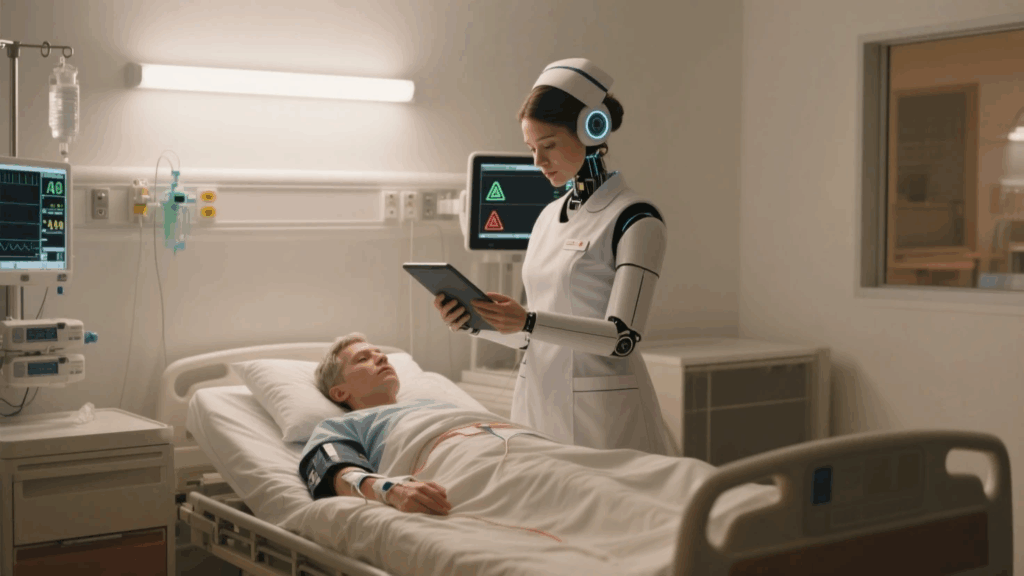The AI healthcare revolution is redefining medicine, enabling hospitals to treat thousands of patients daily with unmatched precision and efficiency. From AI-driven diagnostics to robotic surgeries, artificial intelligence is not just a tool—it’s the future of healthcare. This article explores how AI is transforming patient care, its cutting-edge applications, and the ethical challenges shaping its evolution, ensuring a timeless guide to this medical revolution.
AI-Powered Diagnostics: Precision at Scale
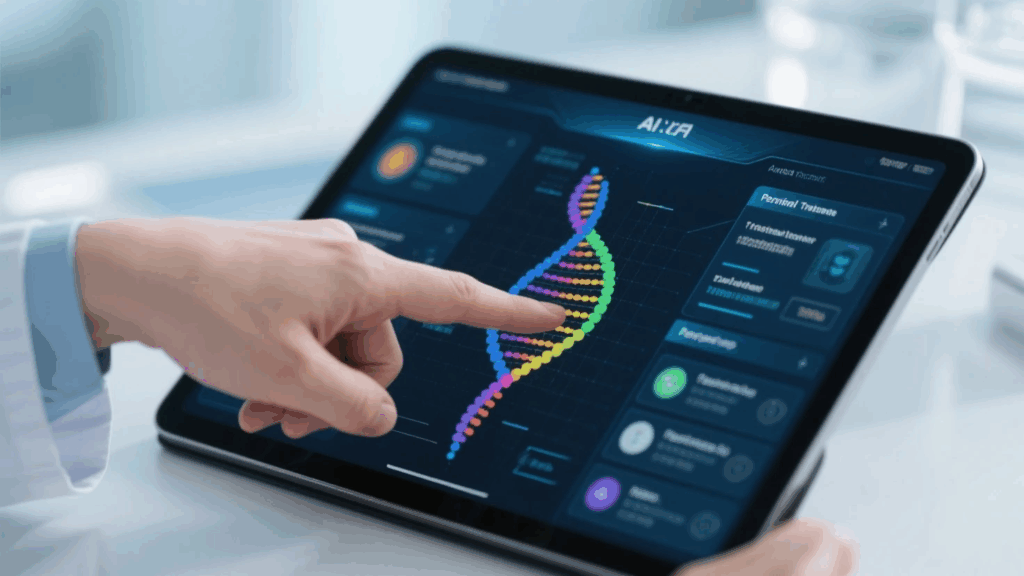
AI’s ability to process massive datasets is revolutionizing diagnostics. Machine learning models, like convolutional neural networks, analyze medical images—X-rays, MRIs, CT scans—to detect conditions like cancer or neurological disorders with accuracy rivaling top specialists. Systems like PathAI screen thousands of pathology slides daily, catching anomalies human eyes might miss. According to MIT Technology Review, AI diagnostics reduce error rates by 30%, allowing hospitals to manage high patient volumes efficiently.
For more on health tech innovations, check NovexaHub’s sustainable living guide.
Personalized Medicine: Tailored Care for Millions
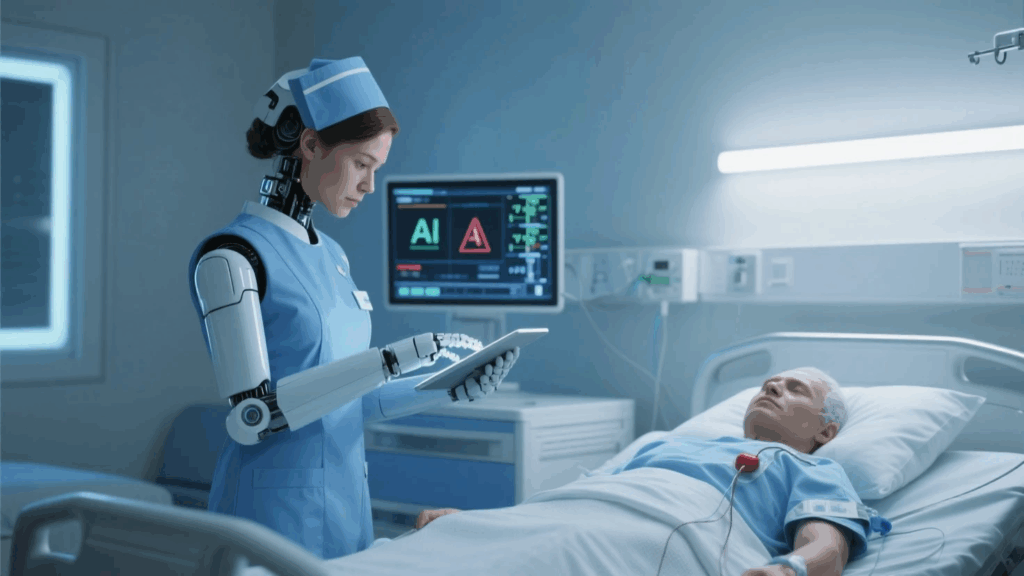
The AI healthcare revolution excels in personalized medicine. By analyzing genetic profiles, lifestyle data, and medical histories, AI crafts bespoke treatment plans for each patient. Platforms like Tempus (USA) use real-time data to recommend diets, medications, and therapies, making personalized care scalable for thousands. As The Lancet, AI accelerates drug discovery, with systems like AlphaFold solving protein structures to fast-track new treatments, slashing development timelines.
AI in Patient Care: Nurses and Robots Collaborate
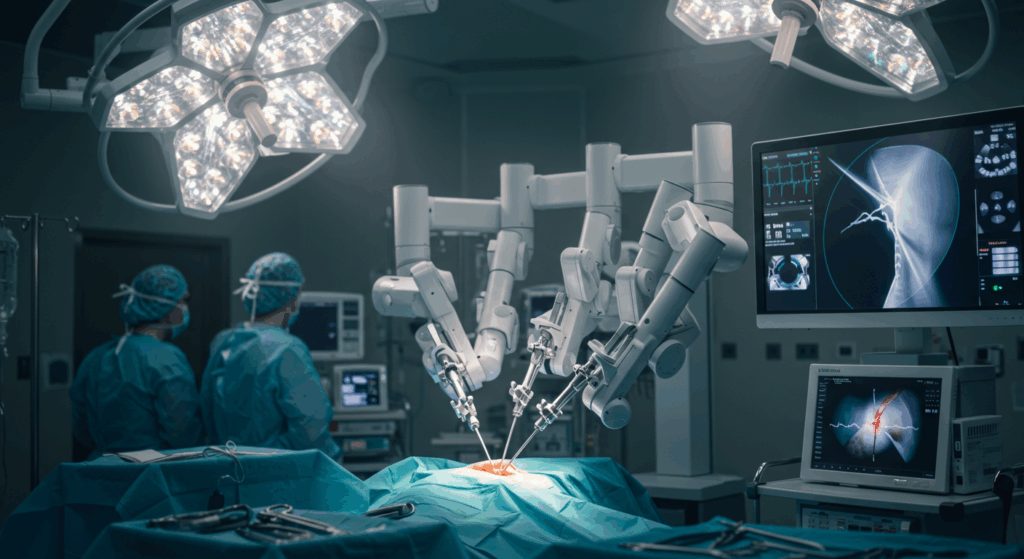
AI is transforming patient care by easing the workload of healthcare professionals. AI-powered nursing robots handle routine tasks like vital sign monitoring and medication reminders, freeing nurses for complex duties. Platforms like MedyMatch (Israel) monitor patients in real time, alerting doctors to emergencies instantly. This allows hospitals to manage thousands of patients daily, with AI triaging cases to prioritize critical ones. NovexaHub’s AI-powered productivity guide explores how AI streamlines workflows.
Robotic Surgery: Precision Redefined
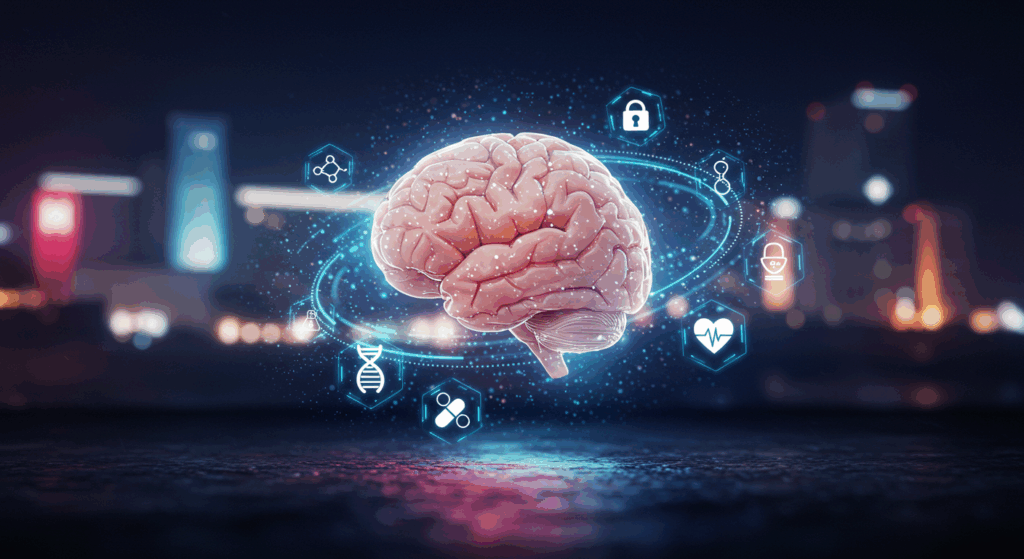
Robotic surgery is a hallmark of the AI healthcare revolution. AI-guided systems, such as those from Intuitive Surgical (USA), enhance precision in complex procedures, reducing recovery times and complications. Platforms like CMR Surgical’s Versius (UK) use AI to assist in minimally invasive surgeries, improving outcomes. CNN Health reports that top hospitals leverage AI-driven robotics to perform hundreds of surgeries daily with near-perfect accuracy.
Ethical Challenges in the AI Healthcare Revolution
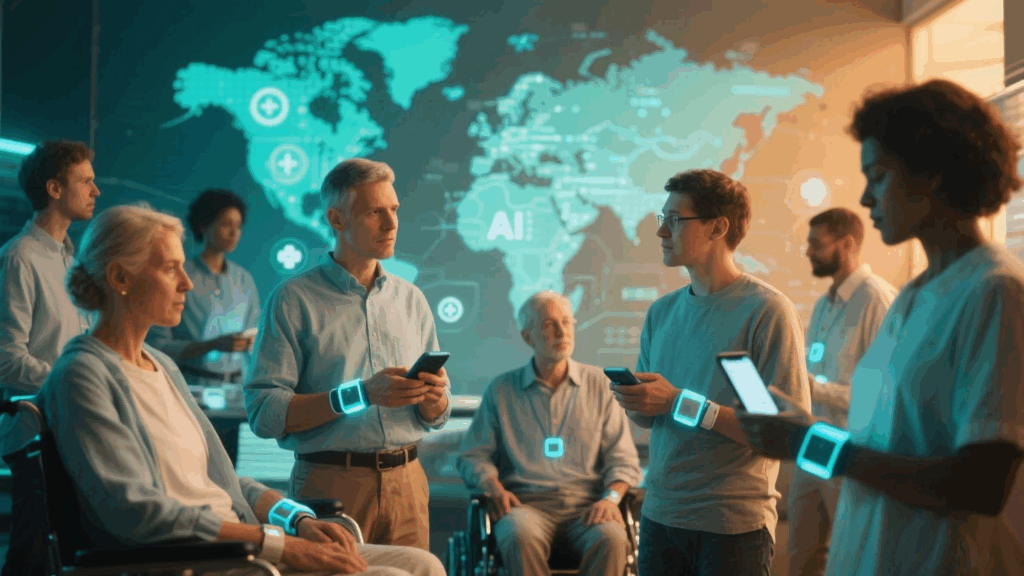
The AI healthcare revolution brings ethical challenges that demand attention. Data privacy, bias in AI models, and accountability for errors are critical concerns. For instance, if an AI misdiagnoses, who is liable—the developer, doctor, or hospital? Research from Nature Medicine emphasizes the need for transparent AI algorithms to prevent biases, especially in diverse patient populations. Solutions like federated learning, which trains AI on decentralized data without compromising privacy, are gaining traction. NovexaHub’s hidden tech dangers guide delves into mitigating tech risks.
The Future of AI in Healthcare
The AI healthcare revolution is just beginning. Innovations like AI-driven telemedicine, wearable health monitors, and predictive analytics are set to further transform care. Wearables, such as Fitbit’s AI-powered devices, track real-time health metrics, enabling early intervention for thousands. Telemedicine platforms, like Teladoc (USA), use AI to connect patients with specialists globally, breaking geographical barriers. As BBC Health notes, AI’s potential to democratize healthcare could make quality care accessible to millions, regardless of location.
For more on tech’s global impact, read NovexaHub’s sexiest tech trends.
Conclusion
The AI healthcare revolution is transforming patient care, enabling hospitals to treat thousands daily with precision, personalization, and efficiency. From diagnostics to robotic surgeries, AI is redefining what’s possible in medicine. Yet, ethical challenges remind us to balance innovation with responsibility. As AI continues to evolve, it promises a future where quality healthcare is within everyone’s reach. Embrace the revolution—it’s here to stay.

